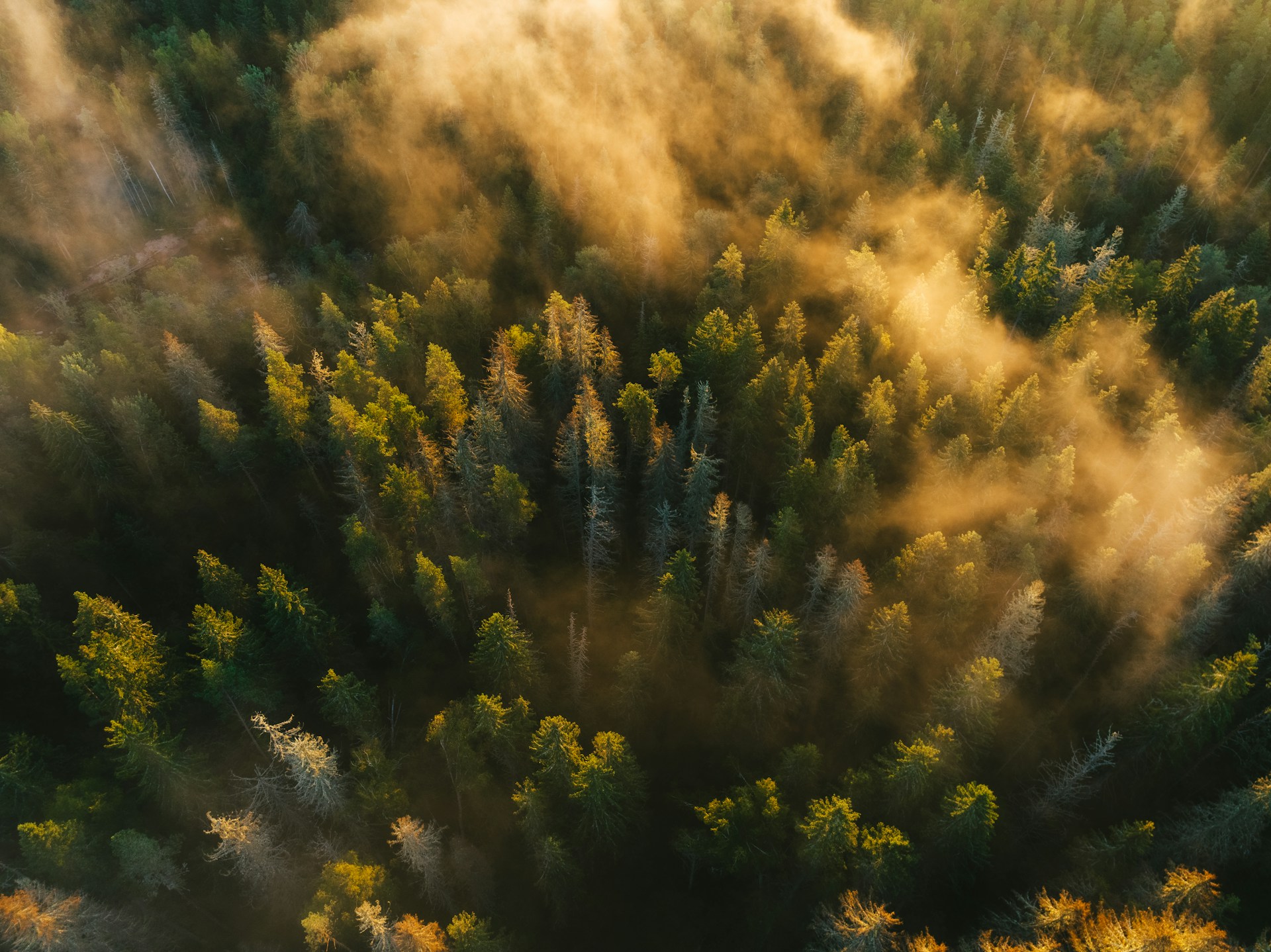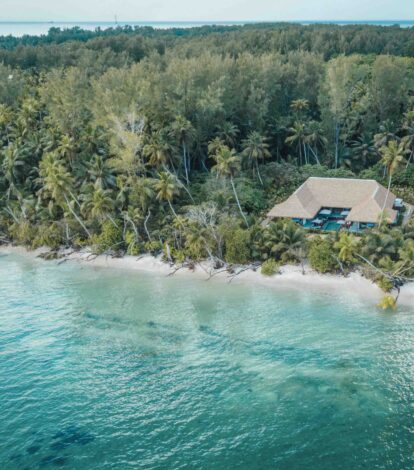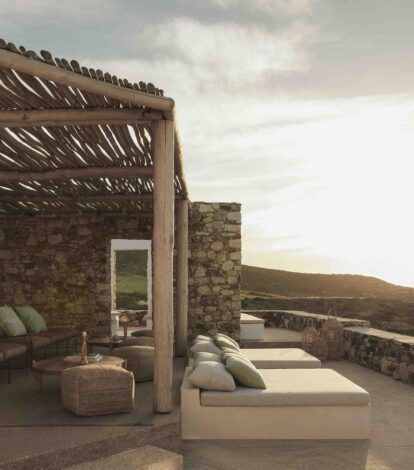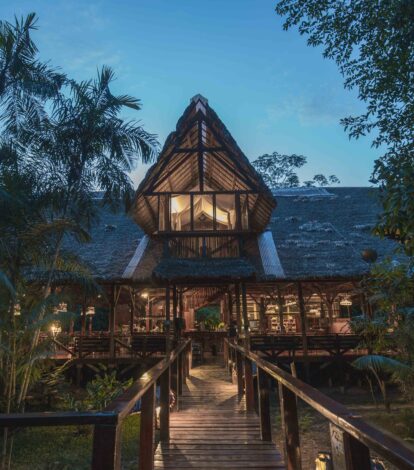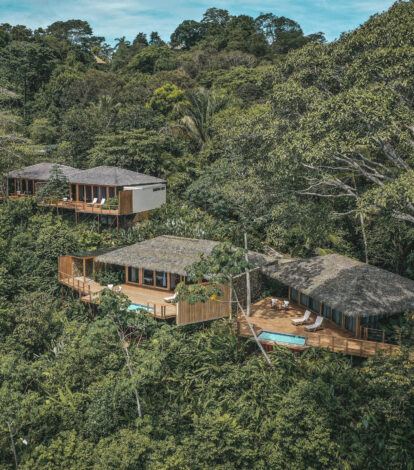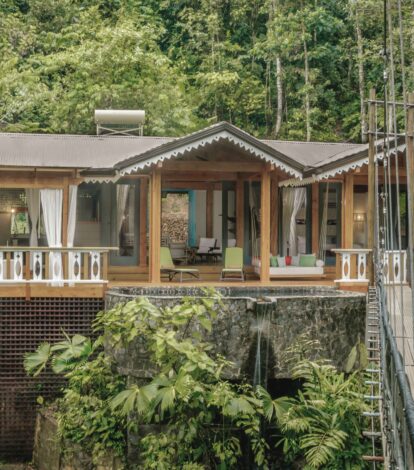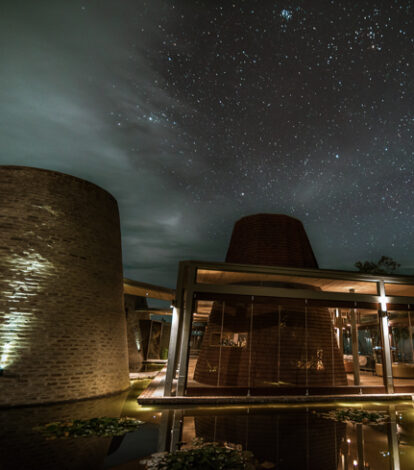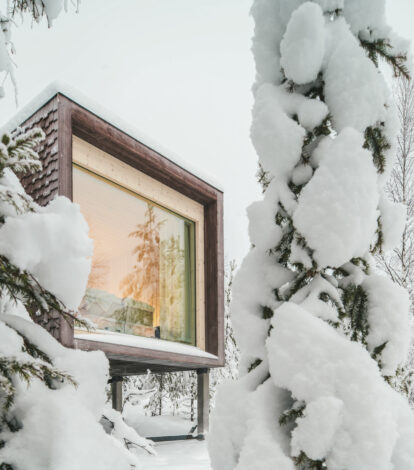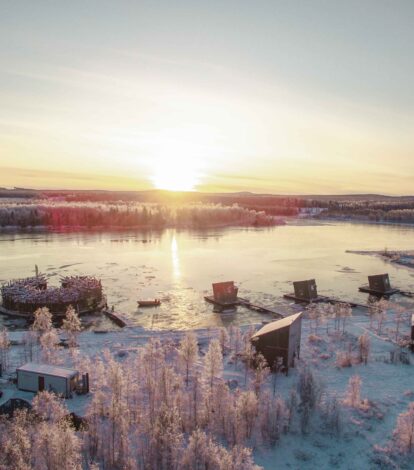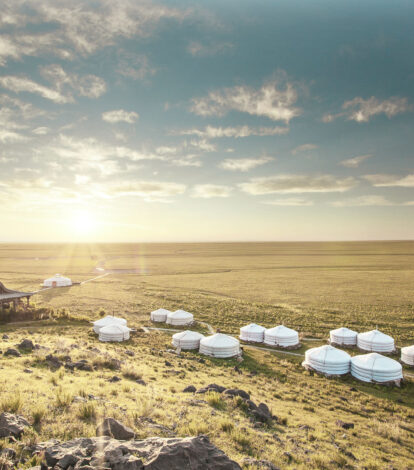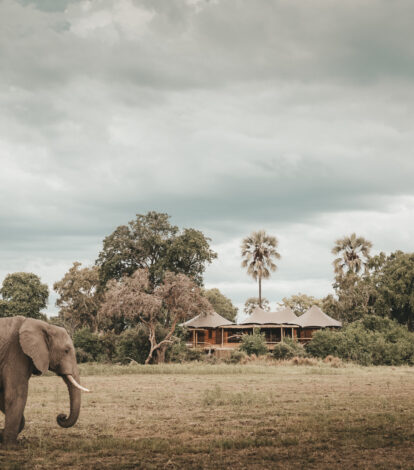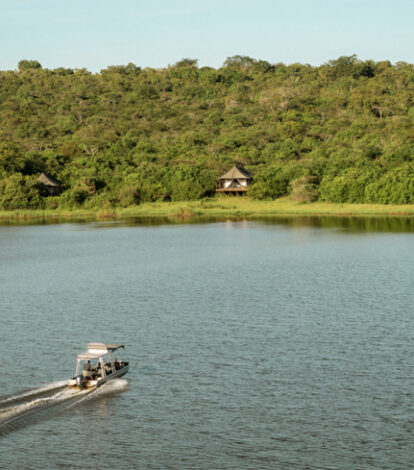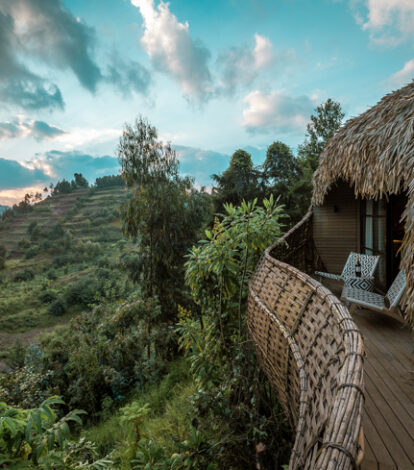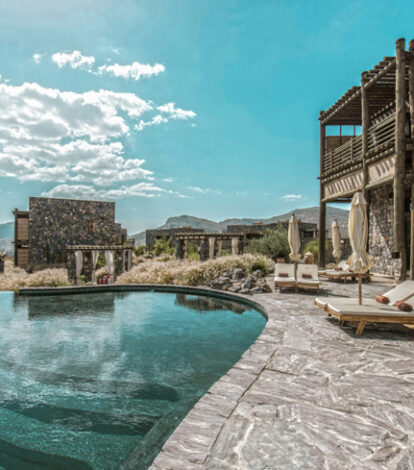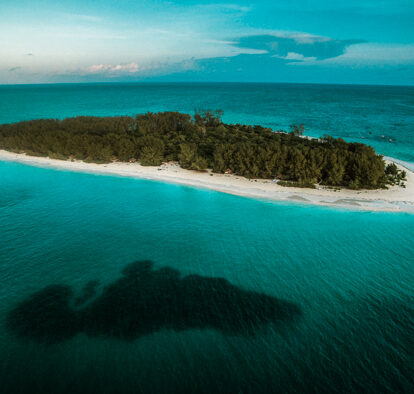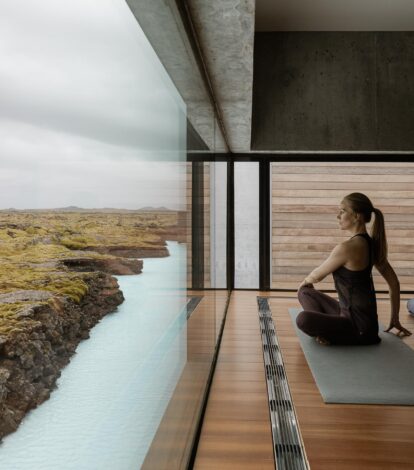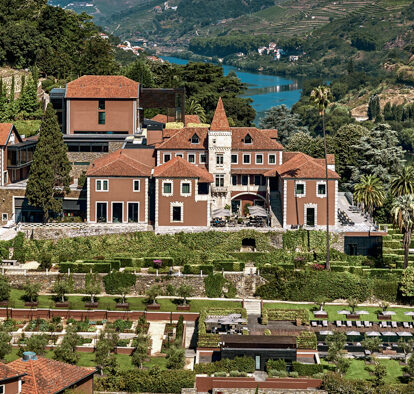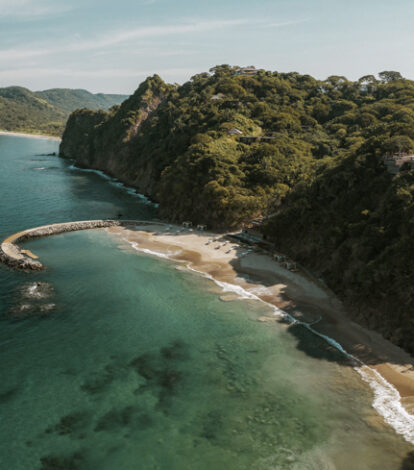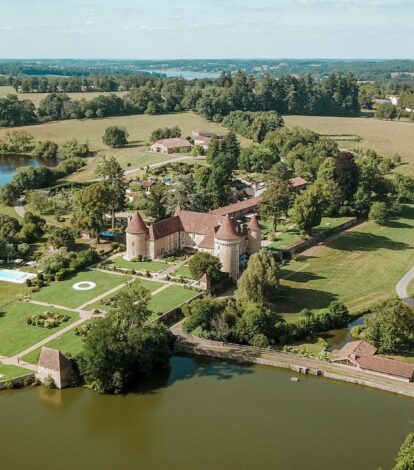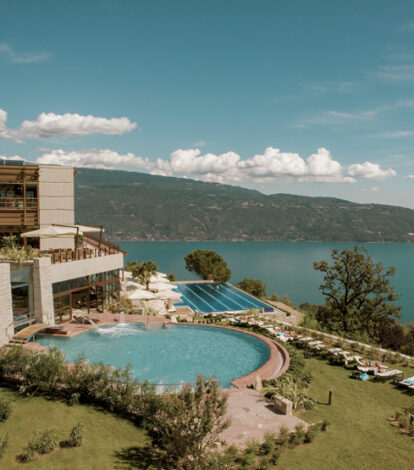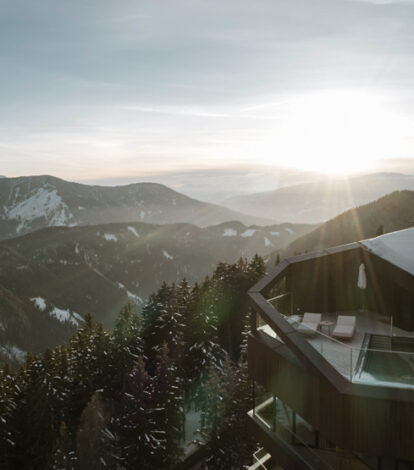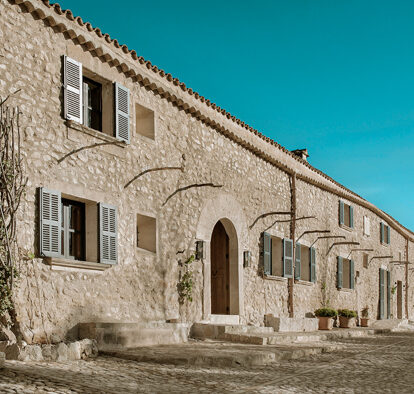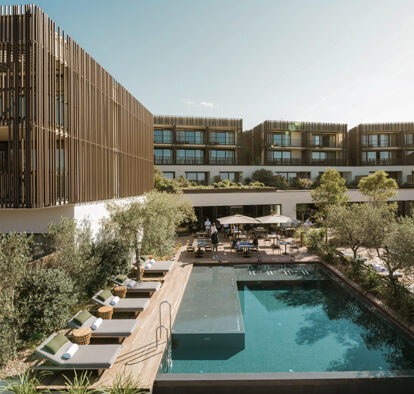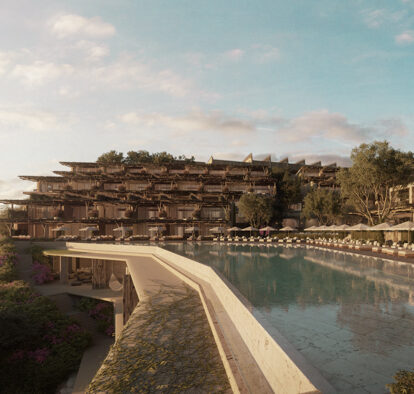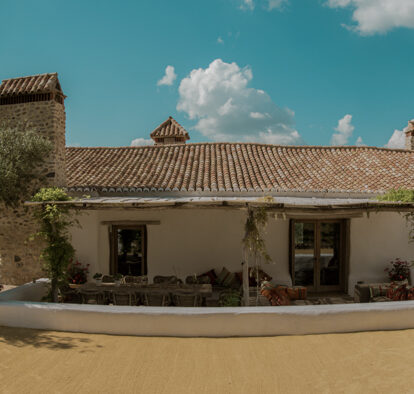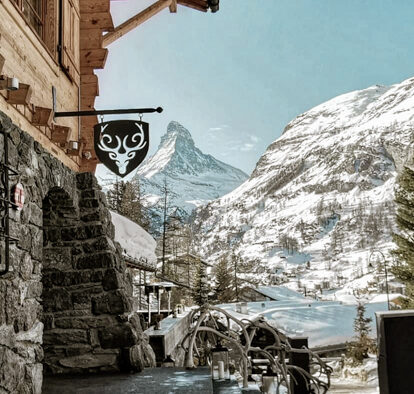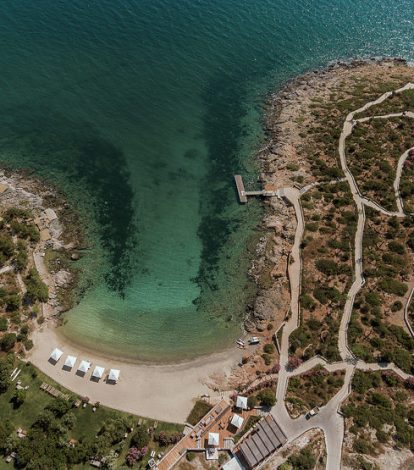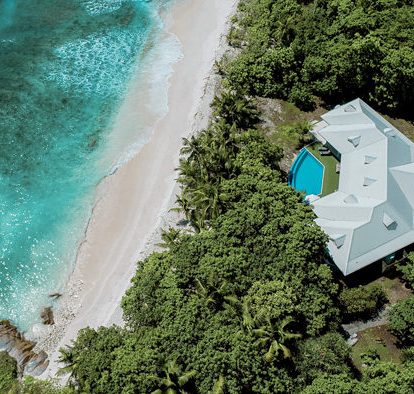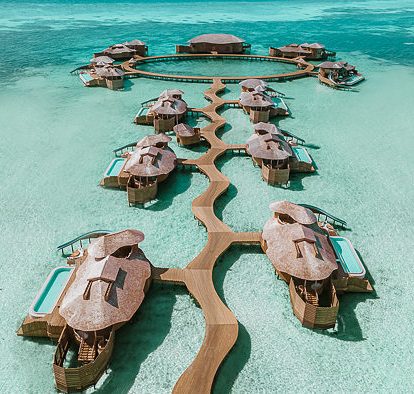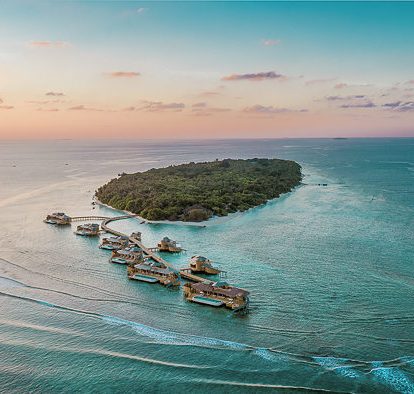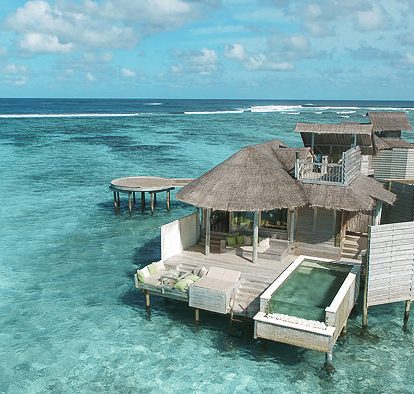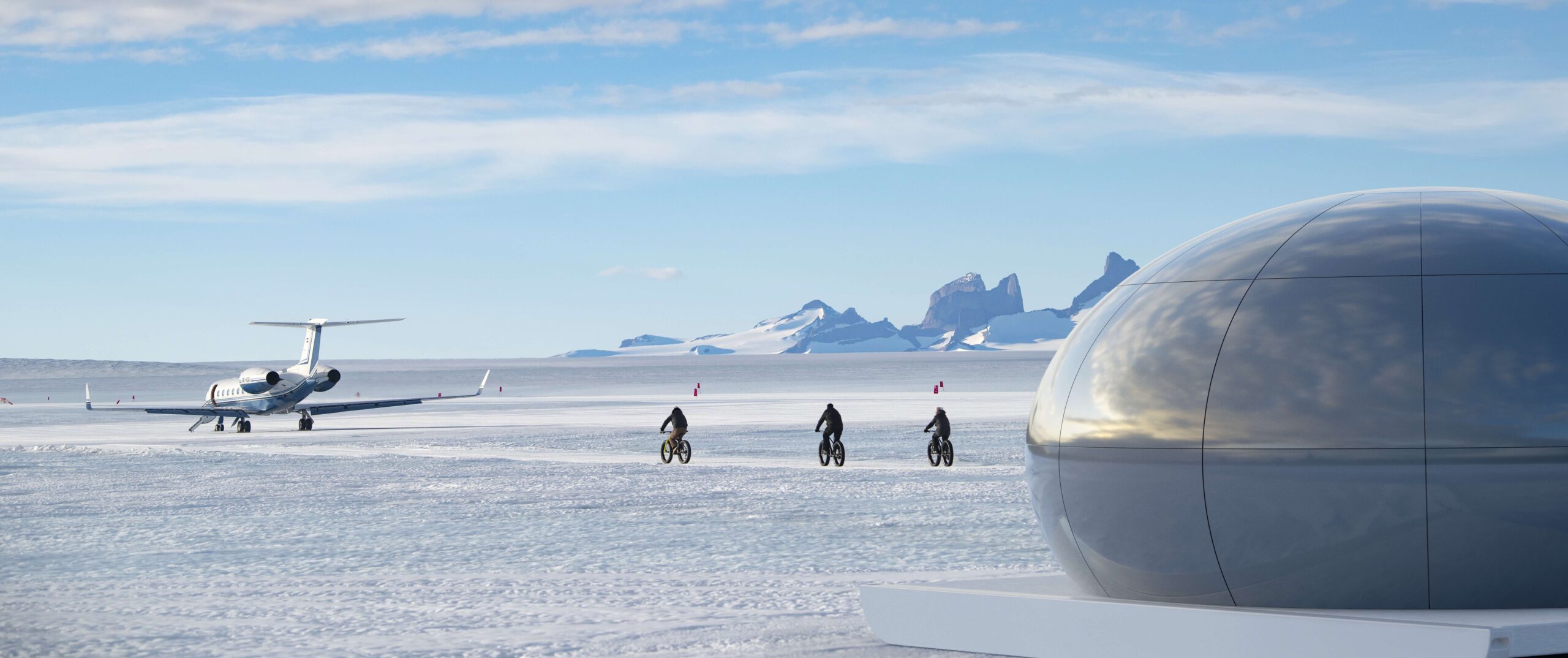These are the hotels where you can experience a more sustainable future of travel.
Hotels that are pushing the boundaries of sustainability, by innovating and implementing very diverse actions.
There is no single blueprint for sustainability. A more sustainable future for travel requires different individual actions, all across the world.
We love how these hotels tackle specific challenges and create a better travel experience for our clients.
Eden Rock, St Barths

Warming ocean waters have significantly damaged corals on the Caribbean island of St Barths. Eden Rock St Barths is using a new BioRock technique to breathe life back into the house reef.
Coral frags are attached to copper supports in the ocean. Low voltage electrical currents are then applied, causing minerals to crystallise into the natural building blocks of a healthy reef.
You can see the success of this project by snorkelling from the shore and around Eden Rock.
It’s also possible to join coral planting. No costs are involved for hotel guests, but they recommend an environmentally-friendly sunscreen like Soleil Toujours that is safe for marine life.
IKOS Dassia and IKOS Odisia, Corfu

IKOS hotels have a refreshingly contemporary approach to the concept of an all-inclusive holiday. They’re also demonstrating how large beachfront resorts can be greener.
Heat pumps, LED lights and aerated flow taps are standard across all IKOS resorts. All their resorts in Spain and Greece are powered by 100% renewable electricity and water reuse across the resorts is close to 100% too.
As a guest at any IKOS property you get one day rental of a Tesla Model 3 or Tesla Model Y, each car recharged with renewables.

IKOS Dassia has a zero-waste initiative and last year it recycled 246 tonnes of organic waste through a treatment facility.
The newer IKOS Odisia is proving to be very popular among our clients and has zero Scope 2 carbon emissions.
Villa Petriolo, Tuscany

Villa Petriolo in Tuscany was awarded Considerate Hotel of the Year 2023 by Small Luxury Hotels of the World.
It’s a rustically romantic retreat surrounded by an organic farm that provides 100% of the food for the restaurant, which has a Michelin Green Star.

Water is heated by 100% in-house solar energy, then reused to irrigate the gardens and agriculture.
Many on-site experiences provide you with a deeper insight into the farm’s sustainable practices, like falconry, truffle hunting, and a journey of wine and cheese from the farm to the tasting table.
Ananda in the Himalayas, India
Known as one of the world’s finest wellness retreats, Ananda in the Himalayas is a destination for healing, cleansing, relaxing and revitalising. Water is the big environmental consideration for a property based around its spa.
In the past 12 months, Ananda in the Himalayas has reduced its natural water use by 60%.
This was achieved through optimising operations in the spa, better technology for recycling water, encouraging guests to voluntarily reduce their consumption, and better water sourcing.
They almost eliminated the need for tankers to deliver water to their remote mountainside location, saving 1658 kilograms of CO2 emissions too.
Gangtey Lodge, Bhutan
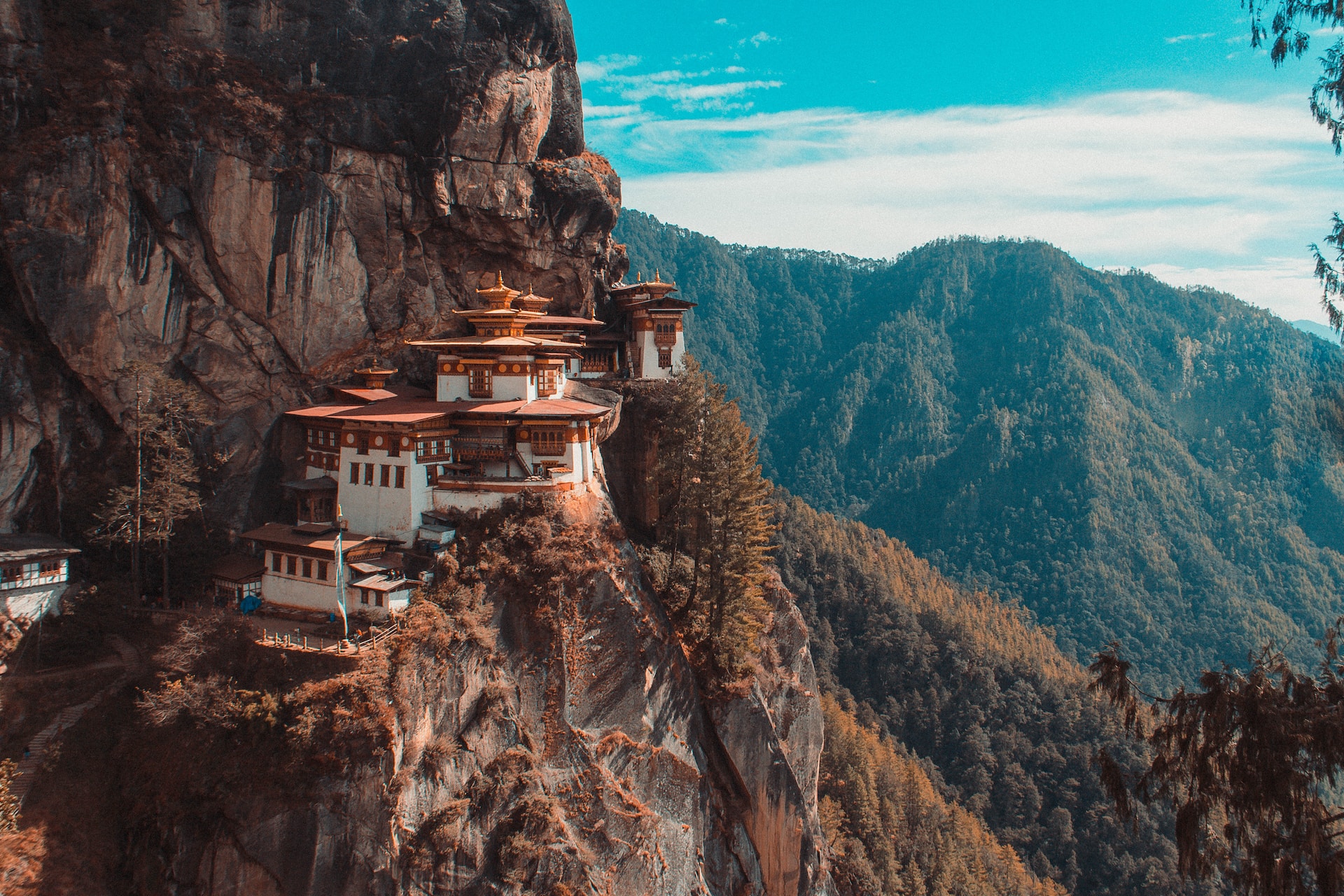
The world’s first carbon-negative country has long promoted the concept of high-value, low-volume tourism. It’s an approach that is more sustainable for communities and the environment, while providing a more exclusive experience for visitors.
Gangtey Lodge is a farmhouse-inspired outpost which encourages the Bhutanese experience of “slowing down and being present”.
Here you are invited to become part of the remote community and literally do what the locals do. Refreshingly, no experiences have been created for tourists.
Your day involves what the locals are doing, which is ever changing depending on the seasons and what’s going on.
Six Senses Con Dao, Vietnam

A private two-kilometre beach is one highlight of this exclusive island hideaway, in an archipelago off the southern coast of Vietnam.
Like so many Six Senses properties, there’s a harmony between modern opulence and nature’s rhythm.
This resort created an incubation centre for green sea turtles. They monitor all nesting sites along its beach, protecting them from predators and incubating at-risk eggs.
Since 2018, 27,000 baby sea turtles have been successfully released into the ocean from the resort’s beach and you can witness more by going there between May and December.
Barracuda Hotel & Villas, Brazil

Barracuda grew from a group of Swedish friends (including Swedish royalty) who visited Itacaré, fell in love with the people and place, and built their own holiday homes. It’s now one of the trendiest places to stay in South America.
Only 5% of the land was used for construction, the rest has been actively preserved and re-wilded. Water is solar heated, bathroom amenities are vegan, and you sip caipirinhas through tabocas straws, a thin local bamboo.

87% of employees are from the local tribe, all the furniture was handcrafted by local Bahian carpenters, and you’re served artisanal cocoa honey at check in.

Barracuda makes luxury travel possible in a remote part of Brazil and you are encouraged to get involved in the local community, such as celebrating the day of Yemanjá, Brazil’s goddess of the sea.
Tutka Bay Lodge, Alaska

A lodge surrounded by wild ocean and rare animals, in an old growth spruce forest of remote southcentral coastline.
Like EliteVoyage, Tutka Bay Lodge is a member of Pristine Mood, the first sustainability qualification for luxury travel.
We like the lodge’s minimal footprint and activities in nature, which are designed to promote awareness and conservation of the wild.
Owner Kirsten Dixon told us about the philosophy: “We hope to inspire our guests to preserve their own wild places as we do. Guests depart renewed, having experienced harmony between comfort and environmental consciousness. It is our dream that our hospitality will inspire a greener planet.”
Hotel Maria, Finland

Four heritage buildings were converted to create this new hotel in the heart of Helsinki, which offers some stunning suites plus a contemporary Finnish spa and wellness.
Within two months of opening, Hotel Maria was awarded the Green Key certificate for excellence in environmental responsibility and sustainable operations.

Renewables power energy-efficient lighting and cutting-edge climate control systems that keep the hotel’s electricity consumption significantly below the norm. Almost all food in the hotel’s two restaurants comes from sustainable small producers in the surrounding area.
In particular, Green Key commended the extensive renovation, which preserved the buildings’ heritage and minimised emissions. “We aspire to give our guests a taste of the pure beauty of Finland, leaving them renewed – naturally” said General Manager Katiina Moksi.
Singita Safari Lodges, Africa

Singita has long been one of our favourite hospitality brands in Africa. They operate highly contemporary safari lodges in unfenced and highly exclusive private reserves.
Like Singita Sasakwa in Tanzania, Singita Kwitonda in Rwanda and Singita Sweni in South Africa.

So much of what Singita does is about conserving and enhancing the surrounding area, so it’s more enjoyable for animals and guests. There’s a lot you can witness and experience too, on a safari at Singita.
Their new project is the Safari Conversations podcast, sharing stories of conservation and community across the continent.
Sustainable holidays are better holidays. They are more authentic and empowering, as well as being better for the planet.
We don’t believe one holiday is sustainable and another isn’t. The future isn’t about the best few sustainable hotels of the world, rather improving sustainability across all hotels in the world.
We believe sustainability is about being conscious of your choices and taking small actions when you can. That’s why we like to celebrate and discover hotels making a difference with their actions.
These hotels are inspiring us to do more as they find a balance between luxury, experience and sustainability.
